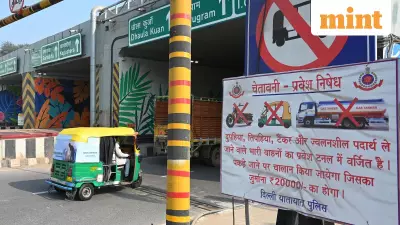
Emotional Connections Drive Jharkhand's Interest in Bihar Elections
The recently concluded Bihar assembly elections have captured nationwide attention, but for residents of Jharkhand, the neighboring state's political outcome holds particularly deep significance. Even as counting for the Ghatshila bypoll unfolded locally, political workers and common citizens alike found themselves more invested in Bihar's electoral drama.
At the Jamshedpur Cooperative College, where bypoll counting was underway, functionaries from both the INDIA bloc and NDA camps continuously checked their phones for round-by-round updates from Bihar. The scene demonstrated how political boundaries cannot sever the deep-rooted connections between the two states.
Historical Ties and Family Bonds
Rajiv Ojha, a BJP functionary, expressed sentiments shared by many when he told TOI on Friday: "I am more interested in the outcome of the Bihar election as the NDA will create a new history there by winning a thumping number of seats." He highlighted the historical context that makes this connection inevitable, noting that Jharkhand was part of undivided Bihar just 25 years ago.
Ojha revealed his personal connections to Bihar, stating: "My ancestors are from Ara in Bihar, and even now, many of our family members live there. We have our ancestral farmland in Ara of Bihar, though we live in Jharkhand. So, we are naturally interested in the political developments in the neighbouring state."
Cross-Party Sentiment and Security Personnel's Interest
The fascination with Bihar's political fate transcended party lines. Vikas Singh, a Congress functionary, shared similar feelings despite his alliance's expected victory in the Ghatshila bypoll. "Though our alliance is winning the Ghatshila bypoll, I am sad as we have been marginalised by the NDA in Bihar," he confessed.
Singh's personal story echoed Ojha's: "I was born in Bokaro before the formation of Jharkhand, and many of my family members live in Muzaffarpur. Our ancestral house and farmland are still in Bihar. So, we are very eager to know which party is forming govt there."
Even police and security personnel stationed at the counting center demonstrated keen interest in the Bihar results. They used mobile phones to track updates and made calls to friends and relatives for accurate data about local seats in their ancestral homes.
Shambhunath, a policeman on duty, offered political analysis alongside personal connection: "Nitish babu has done a lot for the development of Bihar. Though I was born in Jamshedpur before the division of the state, my ancestors are from Buxar. I still have a house and land there."
He contrasted current governance with previous administrations: "Lalu and Rabri had made Bihar famous as the 'kidnapping capital'. It is Nitish who brought 'Sushasan' after Oct 2005. He has made fine roads in Bihar. Now, Patna to Seemanchal is just a six-hour drive, which was 15 hours in the Lalu era."
Celebrations and Political Implications
The discussion about Bihar's political future has dominated conversations throughout Jamshedpur since the two-phase polls were announced a month ago. Every corner of the Steel City has buzzed with speculation about which party would emerge victorious in the neighboring state.
Following the NDA's strong performance, their leaders in Jharkhand displayed visible excitement. Two leaders who served as elected representatives during undivided Bihar—BJP's Rahubar Das and JD(U)'s Saryu Rai—celebrated by distributing ladoos at their official residences on Friday, symbolizing the continued political kinship between the two states.
The overwhelming interest in Bihar's elections among Jharkhand residents underscores how historical, emotional, and familial bonds continue to shape political engagement across state boundaries, proving that administrative divisions cannot easily sever deep-rooted connections.





